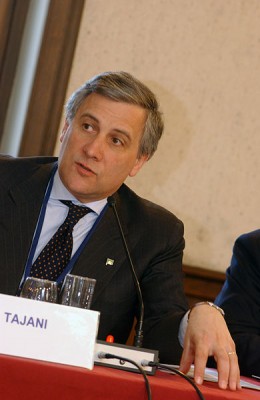Will the crisis trigger anti-environmental agenda? Who knows, but Antonio Tajani, the European industry commissioner stated that “I am in favor of a green agenda, but we can’t be religious about this. We need a new energy policy. We have to stop pretending, because we can’t sacrifice Europe’s industry to climate goals that are not realistic and are not being enforced worldwide.” Yes, very strict environmental agenda is not very healthy to European business environment, which faces over regulation and higher taxation as well. Contrary to Mr. Tjani, I am not a proponent of a weak currency and currency wars. The only sustainable path is a strong currency and easier business environment, which means lower taxes and lower regulations. This is the only way to really boost economic activity within the Eurozone. The only problem is that politicians want something else.
Tax records will be shared worldwide around 2015. That is the strong statement from G20 meeting leaders, who want to crack down on individual tax cheats and global corporations which intend to pay as little tax as possible. “We are committed to automatic exchange of information as the new global standard,” states the G20 final communiqué. So, we will see what this brings, but as one saying goes “if you do not like tax havens, please do not create tax hells”.
Unlike Spain, Italy is not on the radar of mainstream media and it lives its own live. But, to be honest, this country has a lot of problems; maybe more than Spain which is in trouble. From the political point of view, it is heading into a big crisis connected with Silvio Berlusconi and his supporters, who threaten to abolish Italy’s governing coalition, which would not be good for economic reputation of the country. About one month ago, Berlusconi was found guilty by Italy’s highest court. The verdict: four years for tax fraud. But it seems that Berlusconi and his party want special rules. Therefore, Italian media are in a constant state of alarm. Every week there are new headlines claiming the government is about to collapse, this time for real. We will see. The fact is that the country does not perform well economically, and any government failure could cause a lot of trouble. The biggest issue for the government could be Italy’s banking sector, which is broken, to put it simply. One of many banks in trouble is the Monte dei Paschi di Siena Bank, which is facing nationalization. The management of the bank has set up a plan to raise 2.5 billion euros capital from shareholders within the next 12 months. But this is a very unlikely scenario and the bank could fall under direct state control. Italy, struggling to control its 2 trillion euro public debt and looking to boost revenues through privatizations, can fall in deeper trouble once it becomes a shareholder of the bank and will be responsible for another indebted body.
Italian housing market is set to shrink significantly and not only because of the housing bubble, but also because of trends within Italian population. The most important buyers – those between 30 and 40 years old – have declined by more than 1 million since 2005 and the trend will continue till the end of this decade. It means that there will be less prospective buyers for houses. The outcome? It is very probable that prices will follow. And everybody should be aware of the fact that Italian 10 Y treasuries have been higher than the Spanish ones for the first time in the past 18 months.
We have 5th anniversary of the Lehman failure. 5 years of crisis. What is new? The world’s developed (G7) nations have added around $18tn of consolidated debt to a record $140 trillion combined and they have produced only $1tn of nominal GDP activity. In other words, they had to use $18 dollars of debt to generate $1 of growth. Is this sustainable? For now, yes. But only because we have such low interest rates which are set up artificially by central banks.
After two tough days of negotiations in Geneva, John Kerry and his Russian counterpart Sergey Lavrov announced they have reached an agreement about the situation in Syria and how Syria must act to destroy its chemical weapons. It means that the military intervention from the side of the US is not very likely. At least, for now.



